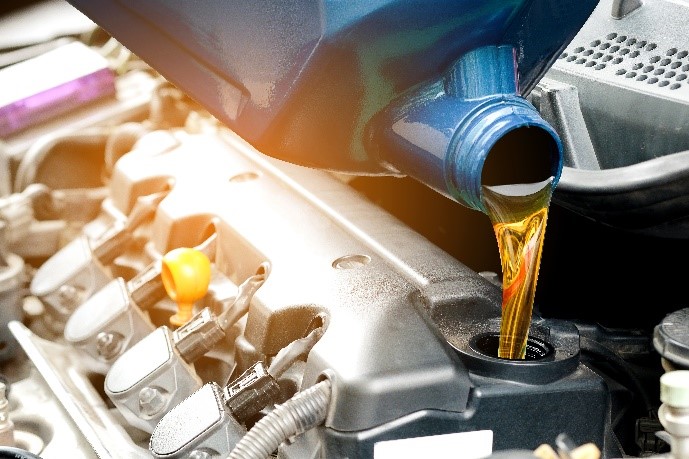The job of every commercial vehicle driver is not just to get their load to the destination in time.  In order to ensure their own success, they must do what they can to keep their vehicle in excellent operating condition. One way is by keeping their diesel engine running at peak performance. Without this step, it can cause major delays and money wasted on repairs.
In order to ensure their own success, they must do what they can to keep their vehicle in excellent operating condition. One way is by keeping their diesel engine running at peak performance. Without this step, it can cause major delays and money wasted on repairs.
If you want to keep your diesel engine running well, then you must make sure you provide regular maintenance as well as oil changes. It is also essential to choose the right diesel oil. You have to check for viscosity grades and engine requirements, and keep in mind your own driving habits as they can cause wear and tear.
The type of diesel oil you choose must offer excellent lubrication to protect from wear and tear. But keep your engine running smoothly and efficiently throughout the life of the vehicle. No one puts more strain on their vehicles than a commercial driver, so taking care of your engine is what will keep you on the road for years to come.
Why Diesel?
Diesel engines were built for heavy machines and vehicles. Usually you will find the diesel engine on a bus, tractor, or large trucks. But you can also find them in SUVs and cars. Commonly, diesel oil is more expensive than regular oil. That is because of the numerous benefits diesel oils provide commercially. These benefits include:
- Lower emissions
- Higher mileage
- Safer
- More economical
- Higher fuel efficiency
The one downside to diesel oil is that when the temperatures get low, the viscosity of the oil changes. Usually this turns the oil into a non-flowing gel that is unable to make its way through the field lines. Thankfully, synthetic oils now have a new additive which is an anti-gelling agent. This ensures the oil does not change viscosity no matter what the temperature is outside.
Choosing the Best Diesel Oil
There are a handful of different factors to consider when choosing the right diesel fuel for your truck. The first is knowing what the manufacturer of the truck recommends. For example, knowing the right viscosity grade recommended will determine the right starting temperature for the engine.
Each diesel oil type is given a certification by the American Petroleum Institute. Bottles are then labeled to fit that particular classification. An example will be “CJ-4” oil. These certifications listed on the labels tell you that it has all the ingredients to ensure that engine type is protected, including additives.
Of course, cost is another thing drivers and carriers look for. Yet, this is one area where no one should take the cheap option. Cheaper oils most likely will not perform as well, while considering that an expensive oil does not mean it’s the best quality. Take both into consideration while choosing the right type for your vehicle.
Plus, you must always remember not all diesel oils are made the same. Look at each of the formulas to know how they will improve (or worsen) the performance of your truck. Look at all the viscosity grades and performance levels. The oil you choose will protect your engine and keep it clean without causing further damage.
Over time, new types of oils and additives will be created. If it helps protect engines, then it is beneficial to the transportation industry as a whole. As new technology is developed, we should see an improvement in both mileage and protection.



 Regular inspections are a major part of the trucking industry. ...
Regular inspections are a major part of the trucking industry. ...

